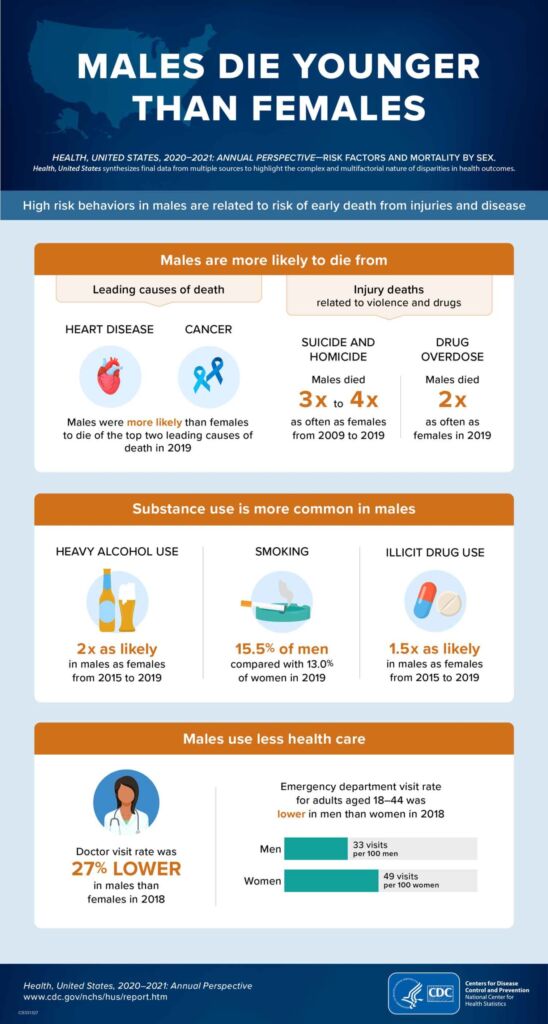
June is Men’s Health Month
SWLA Center for Health Services recognizes June is Men’s Health Month and is dedicated to educating & bringing awareness to men’s health issues around the world.
The purpose of Men’s Health Week is to heighten the awareness of preventable health problems and encourage early detection and treatment of diseases among men and boys.
Men tend to lag behind women in preventive healthcare. According to the CDC, men are 41% likely to die prematurely (before age 65) compared to women. This gap is partly due to fewer doctor visits and a tendency to delay screenings. Men are also more likely to engage in risky behaviors like smoking and excessive alcohol consumption, further impacting their health outcomes.
At SWLA Center for Health Services, we prioritize men’s health and are committed to helping men put their healthcare needs first. Our Primary Care Providers provide quality care for conditions that affect men of all ages and work closely with specialists to discuss treatment options, share test results & coordinate all aspects of your care. Our goal is to help men proactively monitor and maintain their health.
Are you a man with health concerns and ready to put your health first? Schedule an appointment with one of our Primary Care Providers, TODAY!
Risk Factors and Mortality for Men

7 Tips for Men to Take Charge of Their Well Being Now
Schedule Regular Checkups – Think of it as a yearly maintenance plan for your body. Talk openly with your doctor about your health history, concerns, and lifestyle habits. Preventive care for men is crucial for early detection and treatment of potential health issues.
Know Your Numbers – Blood pressure, cholesterol, and blood sugar levels are crucial health indicators. Regular screenings help you and your doctor identify potential health risks early on. High blood pressure, for example, is a major risk factor for heart disease, stroke, and kidney disease. Early detection and treatment can significantly improve health outcomes.
Embrace Preventative Screenings – Don’t shy away from screenings for prostate cancer, colorectal cancer, and other age-appropriate checks. Early detection often leads to better treatment outcomes.
According to the American Cancer Society, a recent study suggests that regular prostate cancer screenings can significantly reduce a man’s risk of dying from the disease [Source Opens in new tab or window]. Early detection of colorectal cancer can also greatly improve the chances of successful treatment.
Move Your Body – Physical activity isn’t just about aesthetics. Aim for at least 150 minutes of moderate-intensity exercise or 75 minutes of vigorous activity each week. This improves overall health, boosts energy levels, and can even reduce stress. Exercise strengthens your heart and lungs, helps manage weight, and improves mood.
Fuel Up Right – Diet plays a critical role in maintaining a healthy weight and reducing your risk of chronic diseases. Focus on whole foods, fruits, vegetables, and lean protein sources. Don’t forget to stay hydrated! A healthy diet provides your body with the essential nutrients it needs to function optimally. Eating a balanced diet can help you maintain a healthy weight, reduce your risk of heart disease, type 2 diabetes, and certain cancers.
Prioritize Mental Wellbeing – Men are less likely to seek help for mental health concerns. Talking to a doctor or therapist is a sign of strength, not weakness. Taking care of your mental health for men is just as important as your physical health.
Build A Support System – Surround yourself with positive influences who encourage healthy habits. Talk openly with friends, family, and even connect with men’s health support groups – you’re not alone! Having a strong support system can provide you with encouragement, motivation, and accountability on your health journey.






